All Blogs

I still remember Liza (pseudonym). She lived in Jashore in southwestern Bangladesh, with the demon who tore her life apart.
No. Let me correct myself.
Liza was forced to live with that demon, by a complex web of exploitative norms and cruel twists and turns of reality.
Growing up, Liza had a childhood which was marked by the same concerns harboured by her friends. ‘Which game should we play today? Do we play hide and seek or cricket?’
Still a shy, young child, Liza blushed red at the mention of marriage. Marriage was something beautiful but yet it was weirdly …
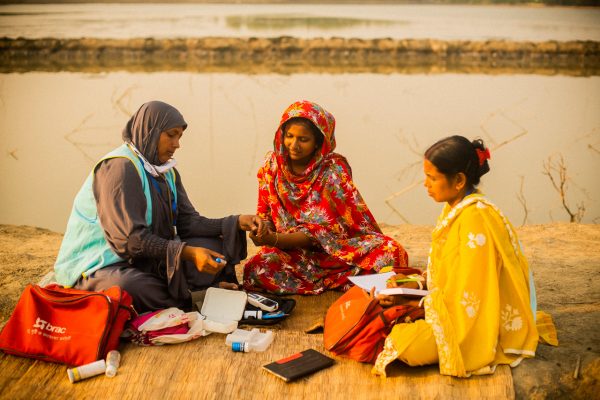
What is the biggest killer of people globally? Perhaps war comes to mind, or famine, or natural disasters?
The answer is much closer to home – the biggest killer globally is non-communicable diseases.
Non-communicable diseases are diseases not transmitted between people or animals, meaning diseases such as blood pressure disorders, diabetes or asthma.
One person dies of non-communicable diseases every two seconds around the world. Almost 9 out every 10 of these people are from low and middle-income countries. In Bangladesh, non-communicable diseases account for 70% of all deaths. Non-communicable diseases are often hard to see, and …
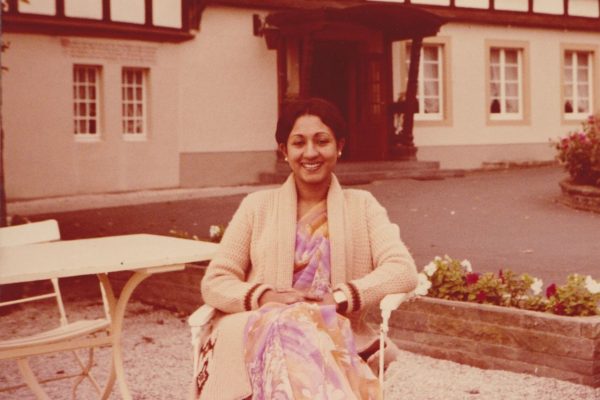
In the early days of BRAC, an indomitable name was intimately associated with all the endeavours undertaken by BRAC. The name was – Ayesha Hasan Abed. Even to this day, this Ayesha Abed remains intricately intertwined with the existence and vision of BRAC. She was known as Bhabi (Sister-in-law) to BRAC’s employees and as ‘Bahar’ to her family and friends.
Regardless of the name with which she was called, until her untimely demise, she embodied the soul of BRAC. With deep affection and an extraordinary personality, she bound everyone in the BRAC family together. During the formative days of …

When it comes to climate financing models, what do you think needs to be done to support people living on the frontlines of the climate crisis, the majority of whom are living in the global south?
Here are the five recommendations for a new climate finance pact that works for the people who need it the most:
- Rebuild trust. The world is tired of empty promises – actions must now match words. Paris has held important symbolism for the potential of multilateral cooperation since the success of the Paris Agreement in 2015, yet promises from global leaders continue to
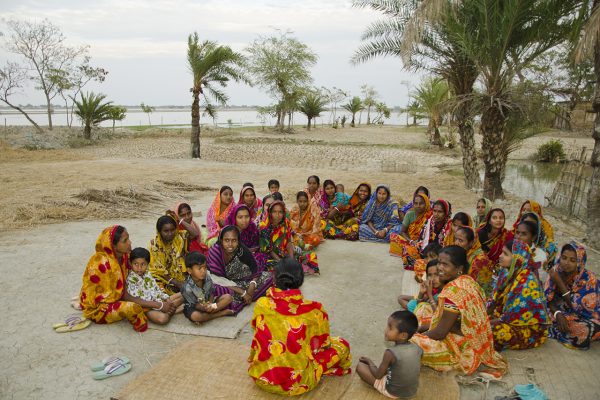
If you want to predict the effects of global warming in Europe, just look to Bangladesh. Despite producing merely 0.56% of global CO2 emissions, this country in South Asia is among the most vulnerable to the climate crisis. Floods, storms, intensifying cyclones, rising sea levels: the consequences of the climate crisis are numerous and visible, and could lead to the displacement of one in seven Bangladeshis by 2050. As a response, the country has introduced a number of measures and allocated a significant proportion of its national budget to combating climate change (over 7% between 2021 and 2022), while …
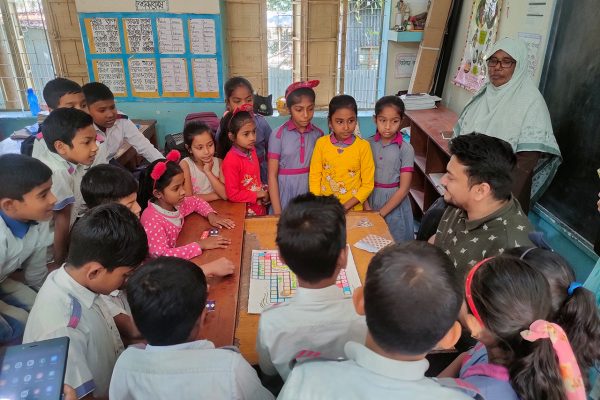
So you want to gamify your interventions? Maybe, you think the people you are working with will respond better to games than traditional approaches. Or, maybe you just want your work to have a sustainable impact.
No matter the reason, we have got you covered.
BRAC’s Social Innovation Lab has long been experimenting with gamification as a crucial element of behaviour change communication. In 2020, as a part of our work in the Hygiene and Behaviour Change Coalition, we developed renditions of snakes-and-ladders and pac-man with COVID-19 hygiene messaging.
Last year, we partnered with professional board game designers …
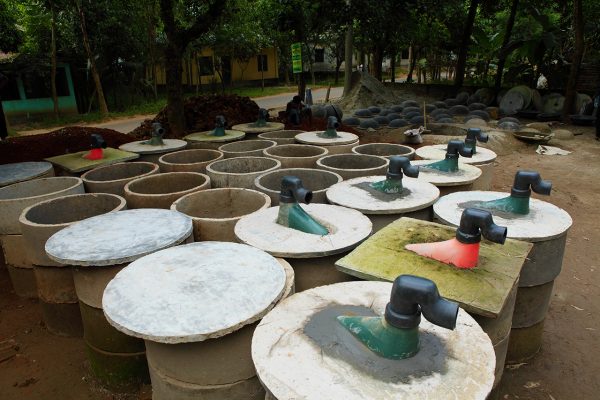
Toilets are still a taboo in many parts of the world. So too, is entrepreneurship for women.
Bhuli Begum took on this twin taboo and turned it into a business opportunity in Patuakhali, southern Bangladesh.
Bangladesh is on the frontline of the climate crisis – and Patuakhali is one of the worst-affected areas. The region is dominated by the coast of the mighty Bay of Bengal, and water, sanitation and hygiene are under constant threat by the many tentacled impacts of the climate crisis.
A sanitation revolution
Bangladesh’s drive for zero open defecation led to widespread adoption of hygiene …
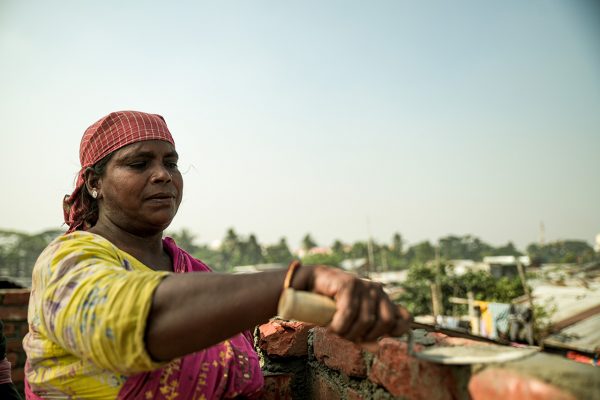
Name an industry dominated by men.
Construction.
This might just be one of the first industries that comes to one’s mind. So, what does it take for a woman to break into this so-called ‘man’s world’ and make it to the top?
For the 40-year-old Shayera Begum, it took rebar-strong determination and an unyielding struggle of fifteen years. Starting out as a day labourer at the construction site in a remote corner of Bangladesh, to becoming a head-mason, respected by all in her community, it’s a story which dreams are made of – dreams that are moulded by subjected …
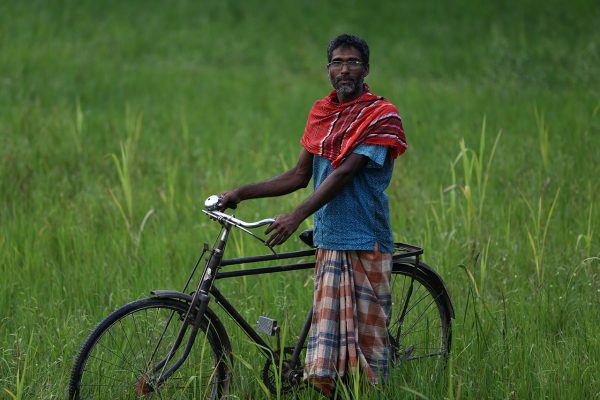
Presbyopia.
Don’t let the medical term scare you off.
If you are reading this article with reading glasses, chances are you have presbyopia. Globally, the condition affects almost 1.8 billion people.
One in five people in Bangladesh suffer from presbyopia. This figure includes more than half the adult population, according to research conducted by VisionSpring and BRAC.
An age-degenerative condition, presbyopia tends to start affecting people at age 35-40 – when they are at the peak of economic productivity. It’s a silent epidemic, for which not only individuals, but the economy overall, pays the price.
Fighting scale with …
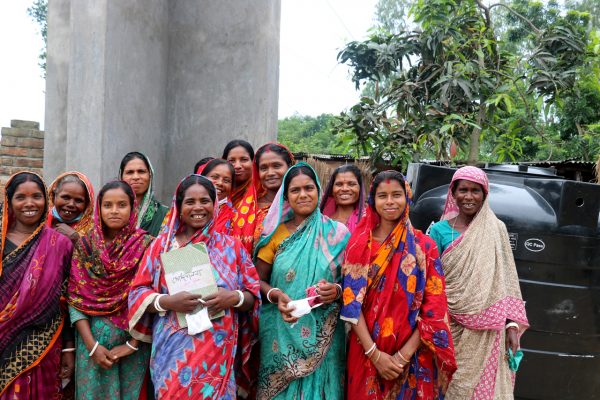
“A day’s water or a day’s wage, which one would you choose?” asks Panmoni Pahan.
Panmoni lives in a small village in northern Bangladesh. The region is known geographically as the Barind tract. Groundwater tables are situated deep underground in the region which already suffers from severe surface water scarcity. Like many in her community, Panmoni now had to walk around a kilometre to the nearest village with a water source after the only tube-well in her village dried up due to over-extraction.
“Often I would return home with an empty pitcher, and be forced to use contaminated water from …
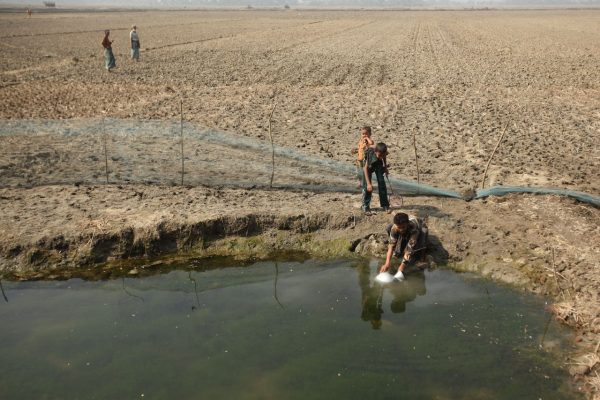
“Some say nature hates us and having to drink salt water is our punishment,” says Wasim Biswas in a steely voice as he explains the extent of misinformation he has to tackle regarding the water crisis in his community at Mongla in the southwest of Bangladesh.
Wasim, a local water activist and a second year student at a technical institute, lives in the small port town of Mongla which has been facing a chronic crisis of safe water for decades now. All the groundwater sources of the region are contaminated by saltwater, leaving rain-water harvesting as the only source …

Fallouts of the pandemic demanded a critical examination and reinvention of our approaches towards development. Against this backdrop, the calls of ‘doing development differently’ rang louder than ever but what’s to be done and more importantly how it ought to be done were the burning questions.
It was these questions which took the centre stage at the seventh edition of Frugal Innovation Forum in October. Hosted by BRAC, the forum brought together 230 development practitioners, thinkers, researchers, innovators and policymakers from across the global south under one roof in Dhaka to answer one question which was – What’s the …

